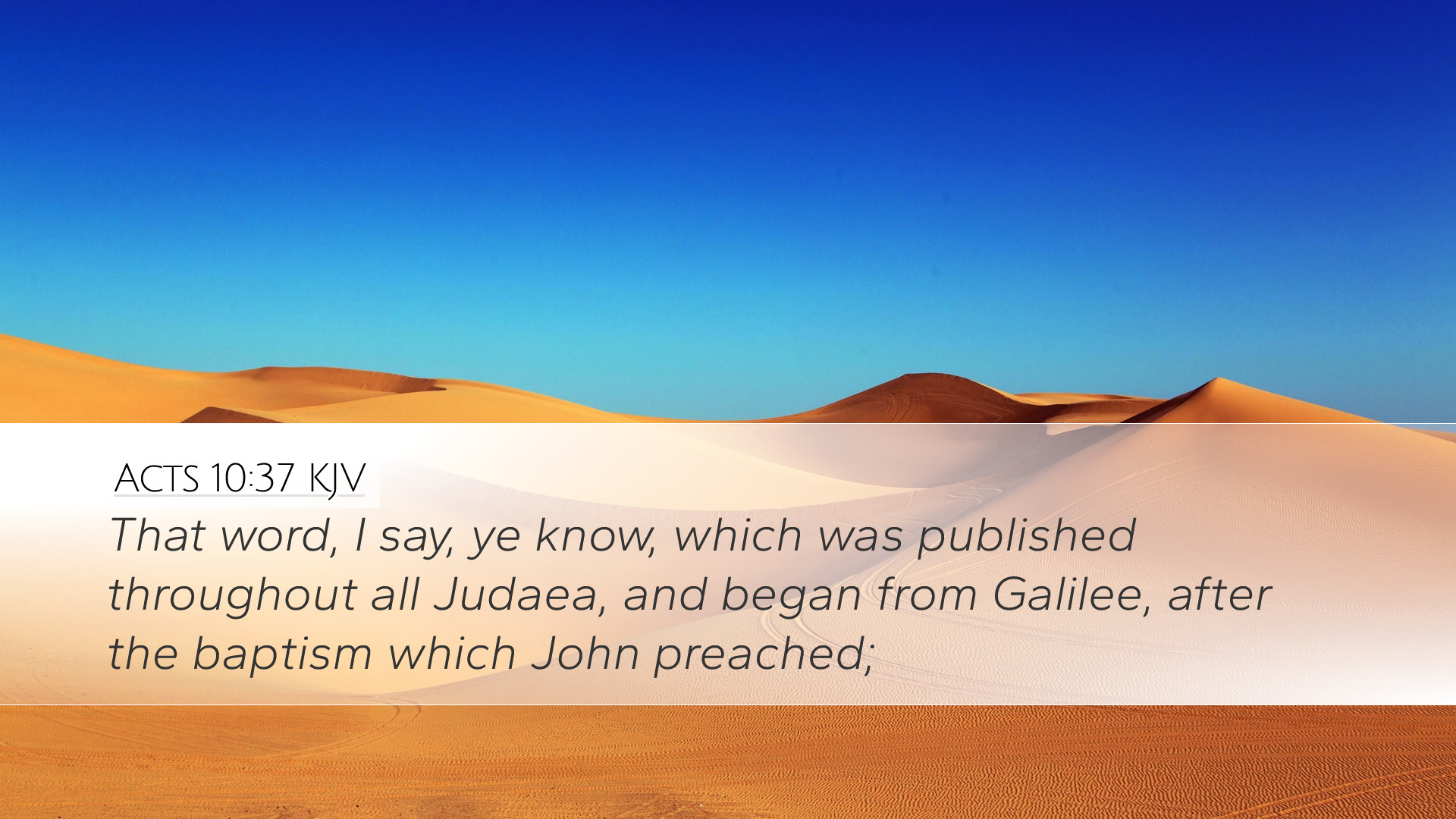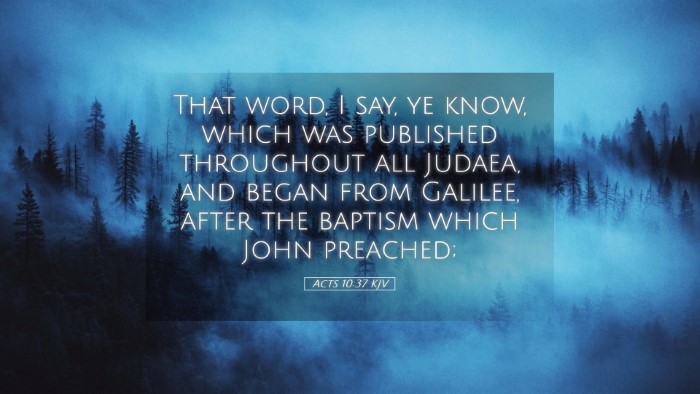Commentary on Acts 10:37
Verse Overview: Acts 10:37 states, "That word, I say, you know, which was published throughout all Judaea, and began from Galilee after the baptism which John preached." This verse marks a significant point in the narrative of Peter's vision and the subsequent acceptance of Gentiles into the church.
Contextual Analysis
Historical Context: Acts 10 is pivotal as it depicts the divine orchestration where Peter is sent to Cornelius, a Gentile centurion. Prior to Peter’s revelation, the distinction between Jews and Gentiles was significantly upheld. This passage indicates a transition in the early Church's understanding of the Gospel's reach.
Cultural Context: The Jewish people carried a deep-seated notion of exclusivity surrounding their faith. The reference to John’s baptism signifies a collective awareness among the audience regarding prophetic traditions leading to Christ. This common knowledge serves to substantiate Peter's message.
Theological Implications
- Universality of the Gospel: Peter’s assertion highlights the expanding horizon of the Gospel, breaking barriers of race and culture. It heralds the inclusivity of salvation to all nations, affirming that faith in Christ is accessible to every individual.
- Significance of John the Baptist: The mention of John's baptism emphasizes the preparatory work that led to Christ's ministry. John’s role as the forerunner gave credence to Jesus’ authority and mission, drawing attention to the redemptive work that was about to unfold.
Insights From Commentaries
Matthew Henry
Henry emphasizes the importance of preaching the word and the spread of Jesus' message throughout Judea, suggesting that the knowledge of Christ’s deeds was not obscure but publicly recognized. He notes that the term "published" implies a wide dissemination of information concerning the life and ministry of Jesus, and it invites a response from those who hear it. The emphasis here is that the message of salvation was not hidden but proclaimed openly, calling the listeners to belief and action.
Albert Barnes
Barnes points out that this verse indicates a timeline for the ministry of Jesus, specifically that the public knowledge of His works started post-baptism by John. He elucidates the significance of John as a prophetic figure, whose ministry prepared the hearts of the people for Christ’s message. Barnes further insists that this revelation broadens the audience to include not just Jews but Gentiles, a transformative change in the narrative of salvation history.
Adam Clarke
Clarke provides a detailed observation on the geographical implications, noting that "from Galilee" indicates a humble beginning for the Gospel and underscores the providential plan in choosing such less esteemed origins. He highlights that Peter’s declaration serves as a summary of Christ’s ministry and is particularly poignant for a Gentile audience, illustrating that God's purpose extends beyond Israel. Clarke emphasizes that the knowledge of Christ should spur believers to action, acknowledging their role in continuing the mission of spreading the Gospel.
Practical Applications
- Embracing Inclusion: This passage encourages contemporary believers and ministries to embrace all individuals without prejudice, following the early Church's lead in addressing inclusivity in their mission efforts.
- Faithful Witnessing: The verse serves as a reminder for Christians to be diligent in witnessing and sharing the Gospel, making it clear that the message of salvation is free for all who would hear and believe.
Conclusion
Acts 10:37 encapsulates a transformative moment in the early Church, marked by the acceptance of the Gospel’s universal call. This passage urges modern readers to appreciate the legacy of faith that transcends cultural and racial barriers, fostering unity within the body of Christ. The insights gleaned from public domain commentaries provide a comprehensive understanding of this verse, enriching the theological discourse surrounding the expansion of the Gospel and the nature of salvation.


